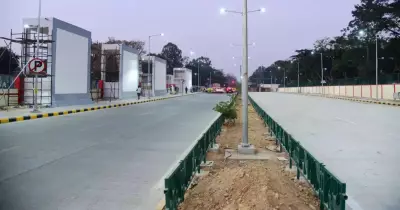
Global democracies are facing an unprecedented threat from rising economic inequality, with India standing out as a country where these disparities have reached alarming levels. According to recent analysis published on November 13, 2025, the growing economic imbalances risk fundamentally weakening democratic institutions across the world.
The Stark Reality of Global Inequality
Economic inequality has escalated into what experts are calling an emergency situation that threatens the very foundations of democratic systems. The data reveals that wealth and income gaps have widened significantly in recent years, creating social divisions that undermine political stability. This trend is particularly concerning for developing democracies where institutions may be less established.
The situation in India presents a particularly stark example of how economic disparities can manifest in a large, diverse democracy. Despite economic growth in certain sectors, the benefits have not been distributed evenly across society. This has created a scenario where a significant portion of the population feels excluded from economic progress.
India's Unique Challenges
India's democratic framework, while robust, faces unique pressures from economic inequality. The country's vast population and regional variations mean that inequality takes multiple forms, from urban-rural divides to inter-state disparities in development. These imbalances create fertile ground for social unrest and political polarization.
What makes the Indian case particularly noteworthy is the scale and complexity of the inequality challenge. The country must address not only income inequality but also disparities in access to education, healthcare, and economic opportunities. These multiple dimensions of inequality compound the threat to democratic governance.
Consequences for Democratic Systems
The weakening of democracies due to economic inequality manifests in several critical ways. When citizens perceive that the economic system is stacked against them, they lose faith in democratic institutions. This erosion of trust can lead to political instability, increased support for populist movements, and decreased participation in democratic processes.
Furthermore, economic inequality often translates into political inequality, where wealthier segments of society exert disproportionate influence over policy decisions. This creates a vicious cycle where policies may further entrench economic advantages for the privileged, making it increasingly difficult to address the root causes of inequality.
The November 13, 2025 analysis serves as a crucial warning that addressing economic inequality is not just a matter of economic policy but a fundamental requirement for preserving democratic governance. As India and other democracies grapple with these challenges, the need for comprehensive solutions has never been more urgent.





